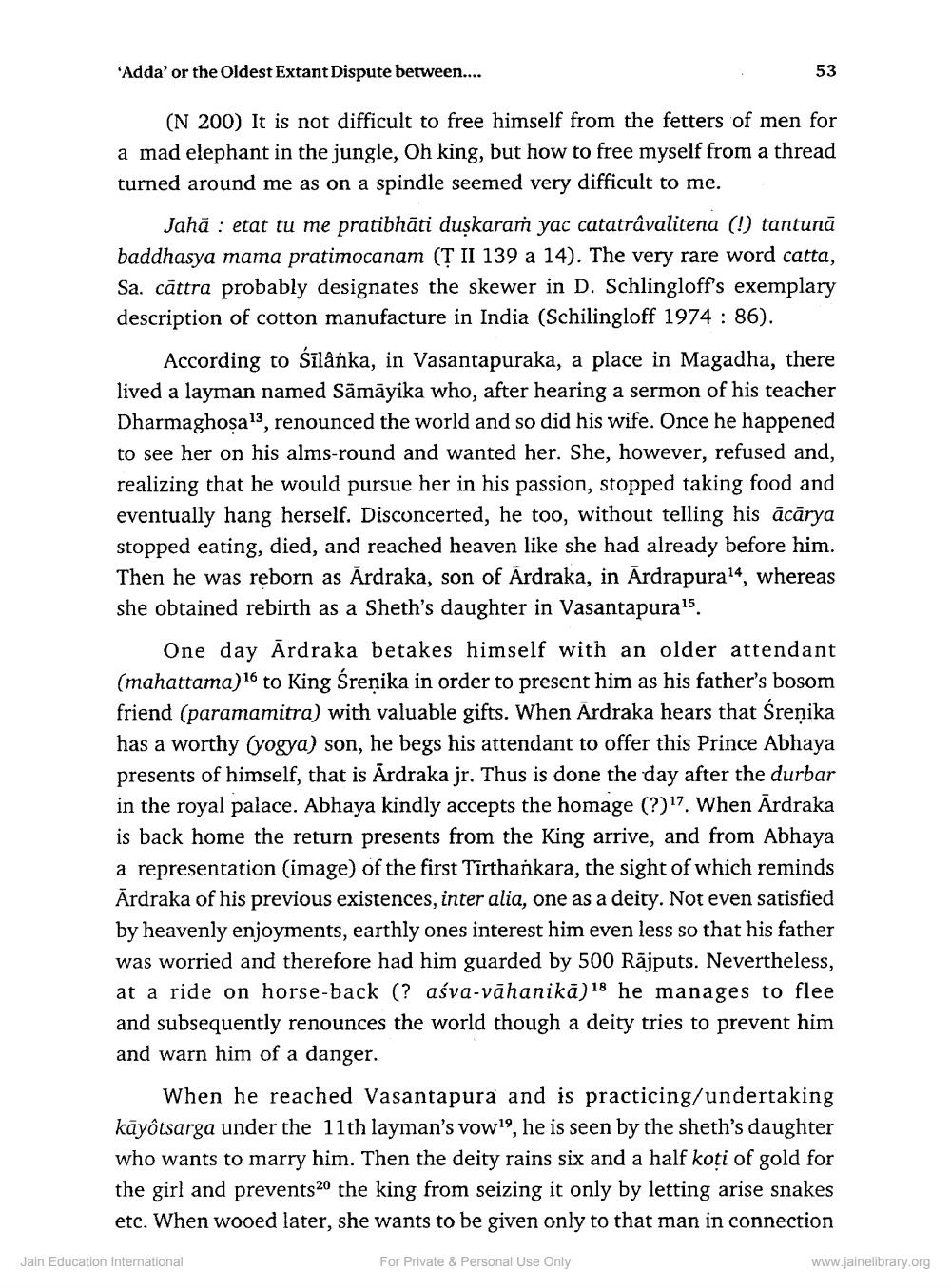________________
'Adda' or the Oldest Extant Dispute between....
(N 200) It is not difficult to free himself from the fetters of men for a mad elephant in the jungle, Oh king, but how to free myself from a thread turned around me as on a spindle seemed very difficult to me.
53
Jahā: etat tu me pratibhāti duşkaraṁ yac catatrâvalitena (!) tantună baddhasya mama pratimocanam (T II 139 a 14). The very rare word catta, Sa. cättra probably designates the skewer in D. Schlingloff's exemplary description of cotton manufacture in India (Schilingloff 1974: 86).
According to Silânka, in Vasantapuraka, a place in Magadha, there lived a layman named Sāmāyika who, after hearing a sermon of his teacher Dharmaghosa13, renounced the world and so did his wife. Once he happened to see her on his alms-round and wanted her. She, however, refused and, realizing that he would pursue her in his passion, stopped taking food and eventually hang herself. Disconcerted, he too, without telling his ācārya stopped eating, died, and reached heaven like she had already before him. Then he was reborn as Ārdraka, son of Ardraka, in Ardrapura14, whereas she obtained rebirth as a Sheth's daughter in Vasantapura15.
One day Ardraka betakes himself with an older attendant (mahattama) 16 to King Śrenika in order to present him as his father's bosom friend (paramamitra) with valuable gifts. When Ardraka hears that Śrenika has a worthy (yogya) son, he begs his attendant to offer this Prince Abhaya presents of himself, that is Ārdraka jr. Thus is done the day after the durbar in the royal palace. Abhaya kindly accepts the homage (?) 17. When Ardraka is back home the return presents from the King arrive, and from Abhaya a representation (image) of the first Tirthankara, the sight of which reminds Ardraka of his previous existences, inter alia, one as a deity. Not even satisfied by heavenly enjoyments, earthly ones interest him even less so that his father was worried and therefore had him guarded by 500 Rajputs. Nevertheless, at a ride on horse-back (? aśva-vāhanikā) 18 he manages to flee and subsequently renounces the world though a deity tries to prevent him and warn him of a danger.
When he reached Vasantapura and is practicing/undertaking kayôtsarga under the 11th layman's vow19, he is seen by the sheth's daughter who wants to marry him. Then the deity rains six and a half koți of gold for the girl and prevents 20 the king from seizing it only by letting arise snakes etc. When wooed later, she wants to be given only to that man in connection
For Private & Personal Use Only
Jain Education International
www.jainelibrary.org




